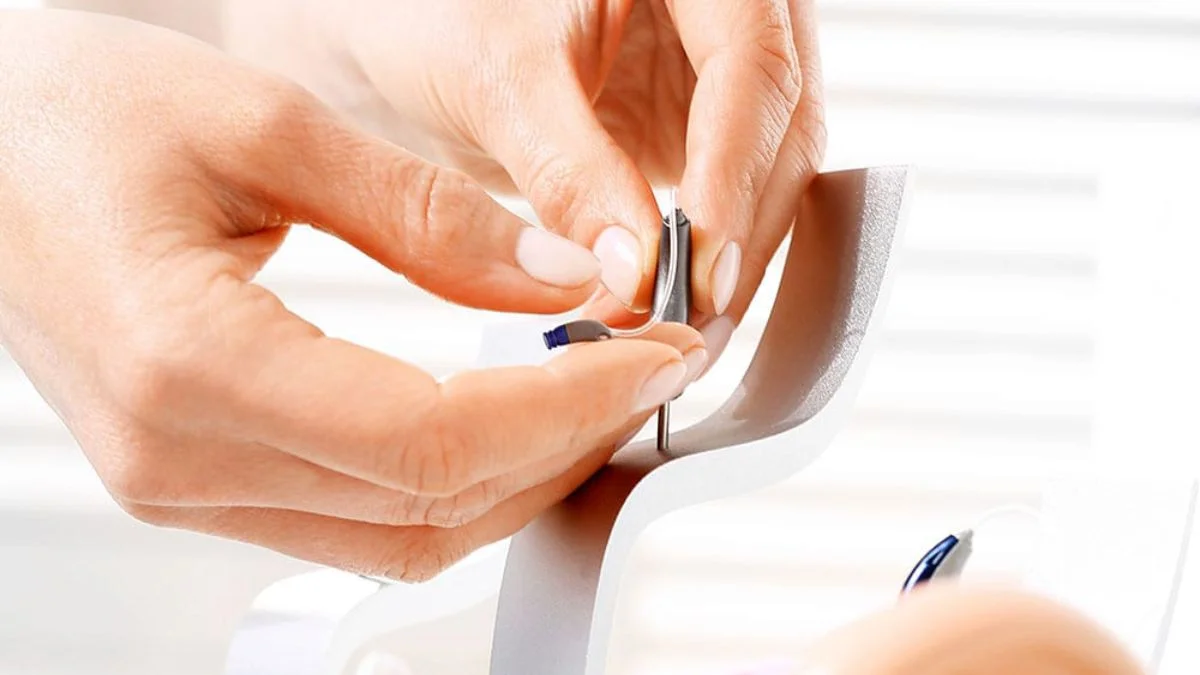Hearing aids are invaluable devices that enhance the quality of life for individuals with hearing loss. To ensure these devices continue to function optimally, it is crucial to practice proper care and maintenance. From regular cleaning routines to safe storage practices, there are several ways to extend the lifespan and effectiveness of your hearing aids. In this article, we will explore five essential strategies to care for your hearing aids and ensure they provide you with clear, reliable sound for years to come.
Daily Cleaning Routine
A consistent and thorough cleaning routine is fundamental to the longevity and performance of your hearing aids. Due to their placement in or around the ear, hearing aids are susceptible to moisture, earwax, and debris. It’s essential to clean your hearing aids daily to prevent these elements from compromising their functionality.
Start by removing the hearing aids from your ears and inspecting them for any visible debris. Use a soft, dry cloth, brush or special hearing aid supplies for cleaning provided by your audiologist to gently remove accumulated earwax and dirt. Be cautious not to use sharp objects that could damage the delicate components of the device. Additionally, check the openings and vents for any blockages, as these can impact sound quality.
For behind-the-ear (BTE) hearing aids, clean the tubing and earmold thoroughly. If you have an in-the-ear (ITE) hearing aid, use a wax pick or loop to carefully remove any earwax. Regular cleaning not only maintains optimal performance but also prevents skin irritation and infections caused by dirty devices.
Protecting Against Moisture
Moisture is a common enemy of hearing aids, as it can corrode internal components and lead to malfunction. To safeguard your devices from moisture, consider using a hearing aid dehumidifier. These small, portable devices are designed to remove excess moisture, preventing damage to sensitive electronic parts. Simply place your hearing aids in the dehumidifier overnight, and it will absorb any accumulated moisture.
Additionally, when not in use, store your hearing aids in a cool, dry place. Avoid leaving them in areas where they may be exposed to extreme temperatures or humidity, such as bathrooms. If you live in a humid climate, investing in a hearing aid dryer or dehumidifier becomes even more critical. By incorporating these moisture-prevention strategies into your care routine, you can significantly prolong the life of your hearing aids.
Battery Care and Replacement
Hearing aid batteries play a vital role in ensuring your devices function properly. To maximize battery life, it’s essential to follow best practices for handling, storing, and replacing them.
When inserting or removing batteries, do so over a soft surface, such as a table or bed, to prevent damage in case they fall. Keep spare batteries in a cool, dry place, and avoid carrying them loose in your pocket, as they may come into contact with metal objects and discharge prematurely.
It’s advisable to change the batteries regularly, even if they still have some power left. A consistent battery replacement schedule helps prevent unexpected shutdowns and ensures your hearing aids operate at their best. Many hearing aids use zinc-air batteries, which should be activated by removing the adhesive tab and allowing them to sit for a minute before inserting them into the device.
Handle with Care
Hearing aids are sophisticated electronic devices that require careful handling to avoid damage. When inserting or removing your hearing aids, do so over a soft surface to cushion any accidental drops. Use both hands to handle your hearing aids, gripping them firmly but gently to avoid bending or damaging the delicate components.
Avoid exposing your hearing aids to extreme temperatures, such as leaving them in a hot car or placing them near heaters. Direct exposure to sunlight for extended periods can also be harmful. When not in use, store your hearing aids in their case to protect them from dust, dirt, and potential damage.
If you participate in activities that expose your hearing aids to excessive moisture, such as swimming or intense physical exercise, consider using protective covers or sleeves designed to shield the devices from sweat and water. These accessories can be instrumental in preserving the integrity of your hearing aids during various activities.
Regular Professional Check-ups
In addition to your daily cleaning routine, it’s crucial to schedule regular check-ups with your audiologist for professional maintenance. Audiologists have the expertise to perform in-depth inspections and address any issues that may not be apparent during your at-home care routine.
During these appointments, the audiologist can clean and inspect the internal components of your hearing aids, ensuring they are free from any accumulated debris or damage. They can also make any necessary adjustments to the settings to ensure optimal performance based on changes in your hearing or lifestyle.
Professional check-ups are also an opportunity to discuss any concerns or difficulties you may be experiencing with your hearing aids. Audiologists can provide valuable guidance on using and caring for your devices and may recommend updates or adjustments to enhance your hearing experience.
Conclusion
Caring for your hearing aids is essential to preserve their functionality and extend their lifespan. By incorporating these five strategies into your daily routine, you can ensure your hearing aids continue to provide clear, reliable sound, ultimately improving your quality of life. From regular cleaning and moisture protection to proper battery care and professional check-ups, investing time and effort in maintaining your hearing aids will contribute to a positive and effective hearing experience.
ALSO READ: ELEHEAR Review: Options, Pros and Cons











